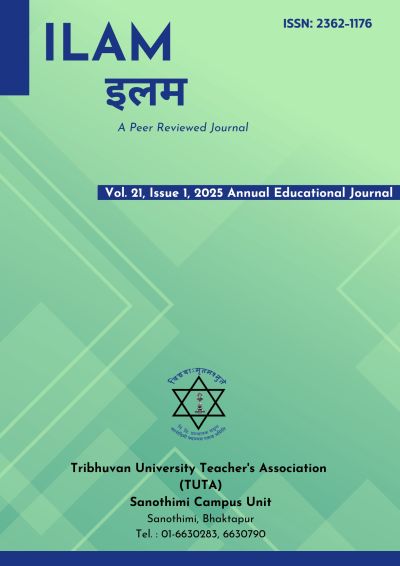Philosophical Assumptions Across Paradigms: Implications for Educational Research
DOI:
https://doi.org/10.3126/ilam.v21i1.75654Keywords:
Paradigm, education, research, epistemology, ontology, axiologyAbstract
A research paradigm is a philosophical framework that guides an investigator to declare her/his position in research. Gaining deeper insights into different research paradigms is crucial for educational researchers to carry out research, either quantitative, qualitative, or mixed, in the field of education. The paradigm helps researchers select new and relevant research problems, formulate objectives, determine research questions or hypotheses, decide on research methodology, and analyze collated information credibly and authentically. In this regard, this article explores epistemological, ontological, and axiological assumptions of positivism, post-positivism, interpretivism, and critical paradigms with their implications in educational research. Methodologically, this article has been developed by using secondary data sources such as books, reports, and articles, especially published at international level. Twenty-three pieces of relevant scholarly works dated from 2005 to 2022 were consulted while preparing this article. Results of the article reveal that positivism emphasizes on objectivity, quantitative data, statistical analysis, and replication based on survey and experimental designs to study educational phenomenon. Post-positivism focuses on subjectivity, and acknowledges imperfection of knowledge, while interpretivism underscores subjective meaning of human experiences, culture, and practices. Critical paradigm examines the role of power and social structures in shaping educational policies and practices. These paradigms provide a framework of reference to investigators to research particular educational phenomenon in reliable and valid way.




